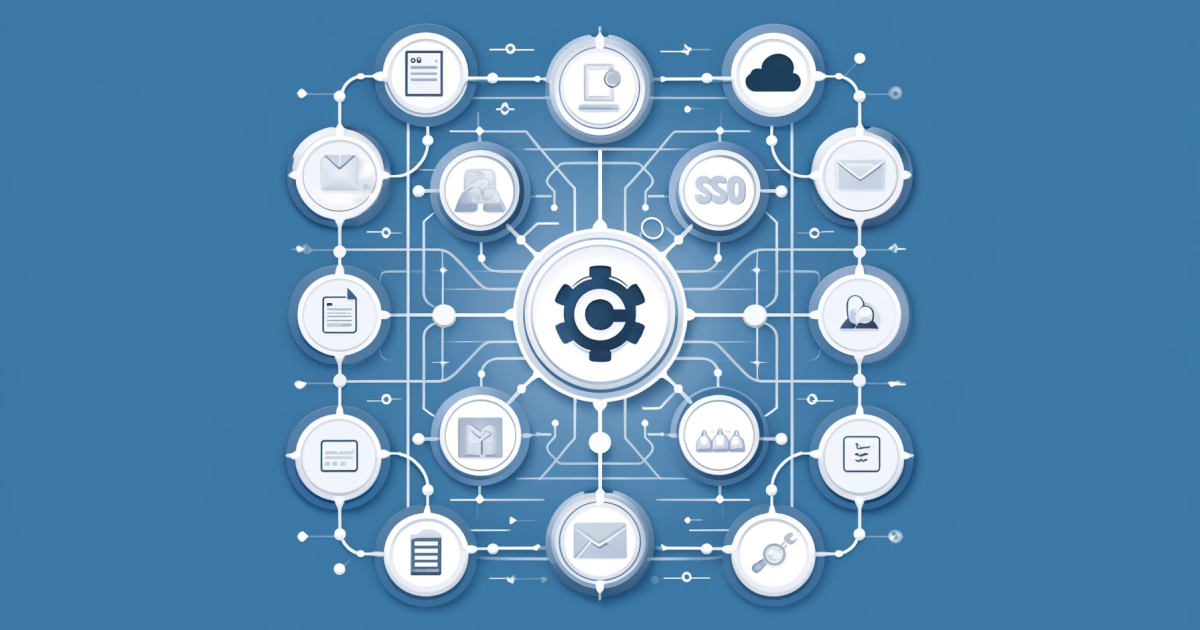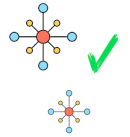Integrations
Common Integrations Key to CMS Implementation Success
Proper planning and execution of common integrations such as migrating existing website, single sign-on (SSO), CRM, personalization and enhanced search are just as critical as the overall architectural choice of the CMS itself.

1. Migrating Existing Website Content
Content migration is often the first step in CMS implementation. This process involves transferring content from an existing system to the new CMS. Successful migration ensures that no valuable content is lost and that the content retains its structure and format.
- Planning: Identify the types of content to be migrated and map out how they will be represented in the new CMS.
- Execution: Use automated tools where possible to streamline the migration process and minimize manual effort.
- Verification: After migration, verify that all content has been transferred accurately and is accessible within the new CMS.
2. Authentication and Single Sign-On (SSO)
Authentication and SSO integrations enhance security and user convenience by allowing users to log in once and gain access to multiple systems.
- Planning: Determine the authentication standards (e.g., OAuth, SAML) that the CMS must support.
- Execution: Implement SSO solutions that integrate with existing identity providers.
- Verification: Test the authentication process to ensure users can log in seamlessly and securely.
3. CRM Form Submission
Integrating the CMS with a Customer Relationship Management (CRM) system ensures that data collected from web forms is automatically entered into the CRM. This integration streamlines lead management and enhances customer relationship strategies.
- Planning: Identify the forms that need to be integrated and the corresponding fields in the CRM.
- Execution: Use APIs or middleware to facilitate the transfer of data from the CMS to the CRM.
- Verification: Test form submissions to ensure data is accurately captured and transferred.
4. Personalization
Personalization involves delivering tailored content to users based on their preferences and behaviors. Integrating personalization engines with the CMS can significantly enhance user engagement.
- Planning: Define the personalization criteria and the data needed to support it.
- Execution: Implement personalization tools and integrate them with the CMS to deliver targeted content.
- Verification: Continuously monitor and adjust personalization strategies based on user feedback and analytics.
5. Enhanced Search Capabilities
An effective search function is crucial for user experience. Integrating advanced search capabilities with the CMS can help users find relevant content quickly and easily.
- Planning: Determine the search features needed (e.g., faceted search, full-text search) and the data sources to be indexed.
- Execution: Use search engines like Elasticsearch or Solr and integrate them with the CMS.
- Verification: Test the search functionality to ensure it returns accurate and relevant results.
Planning and Implementation: A Critical Approach
The integration planning process should be meticulous, involving all stakeholders to understand their requirements and expectations. Key steps include:
- Requirement Analysis: Gather requirements from all departments to understand the integration needs.
- System Mapping: Create a detailed map of the systems involved and how they will interact with the CMS.
- Timeline and Resources: Develop a realistic timeline and allocate resources, including technical expertise and budget.
- Testing and Quality Assurance: Implement rigorous testing protocols to ensure integrations work as intended.
- Documentation and Training: Provide comprehensive documentation and training for users and administrators.
Conclusion
Integrations play a pivotal role in the success of a CMS implementation. By ensuring seamless interaction between the CMS and other systems, organizations can maximize the functionality and value of their digital ecosystem. Proper planning and execution of integrations are just as important as selecting the right CMS, making them critical components of the overall strategy.





